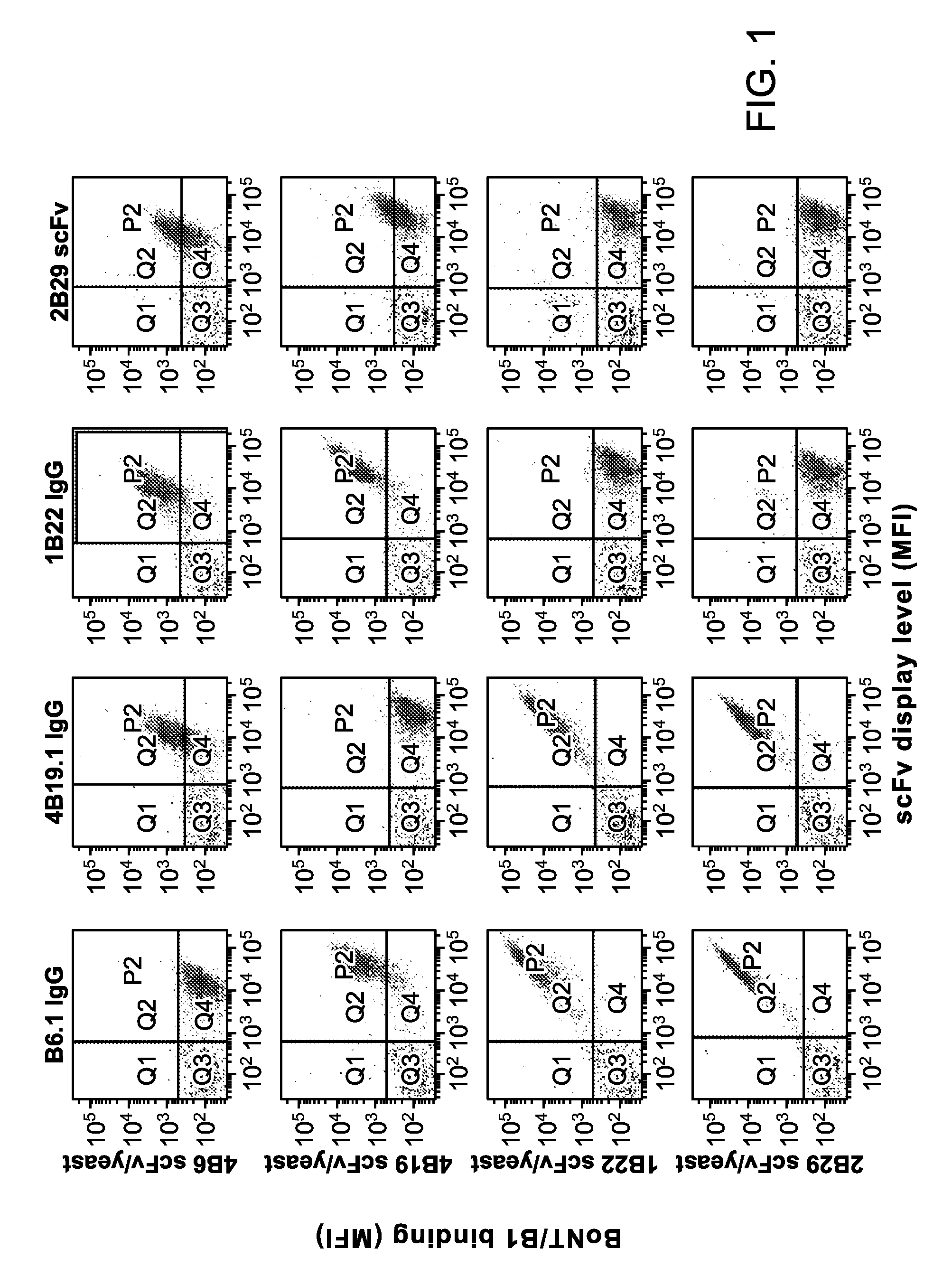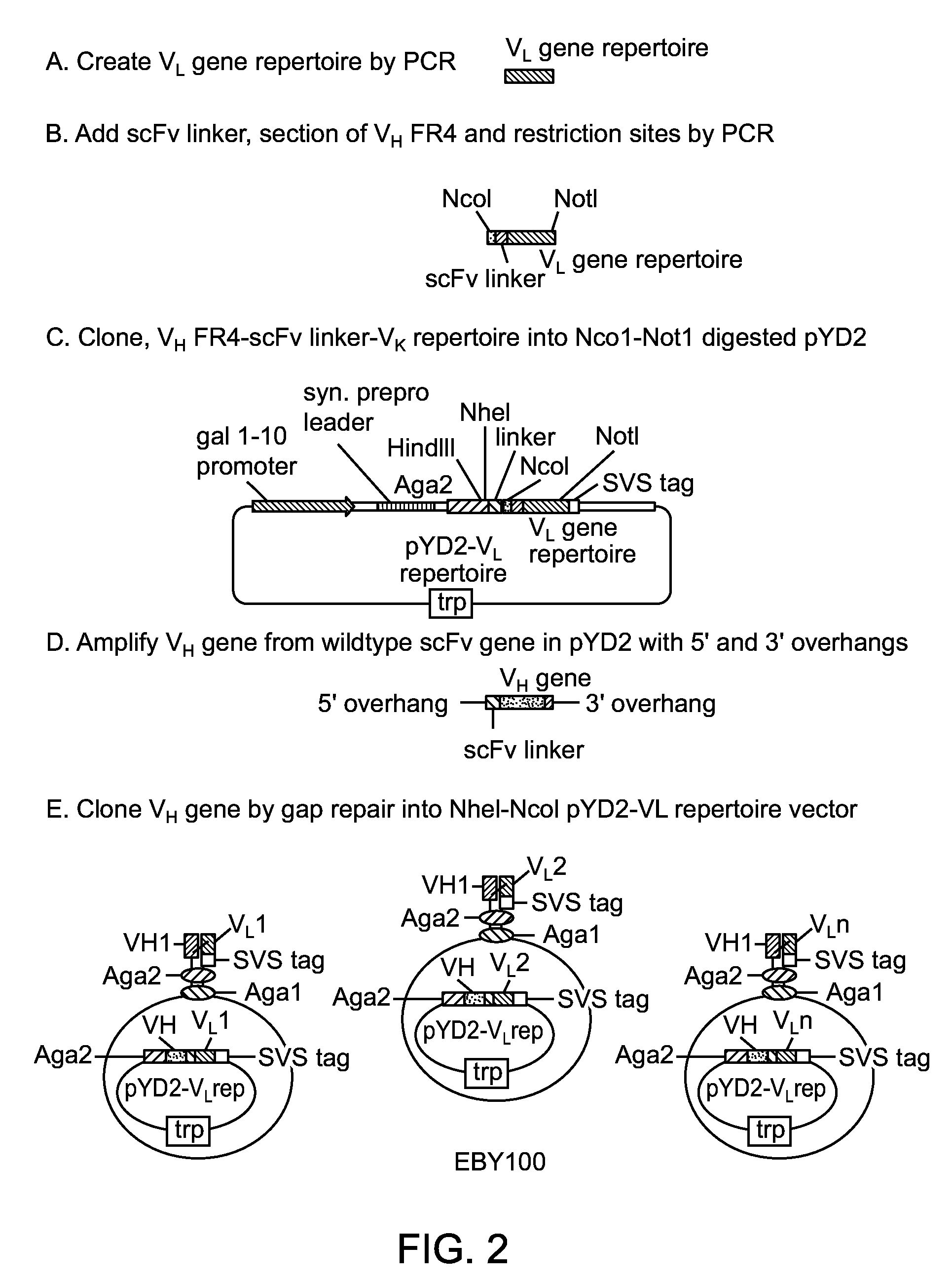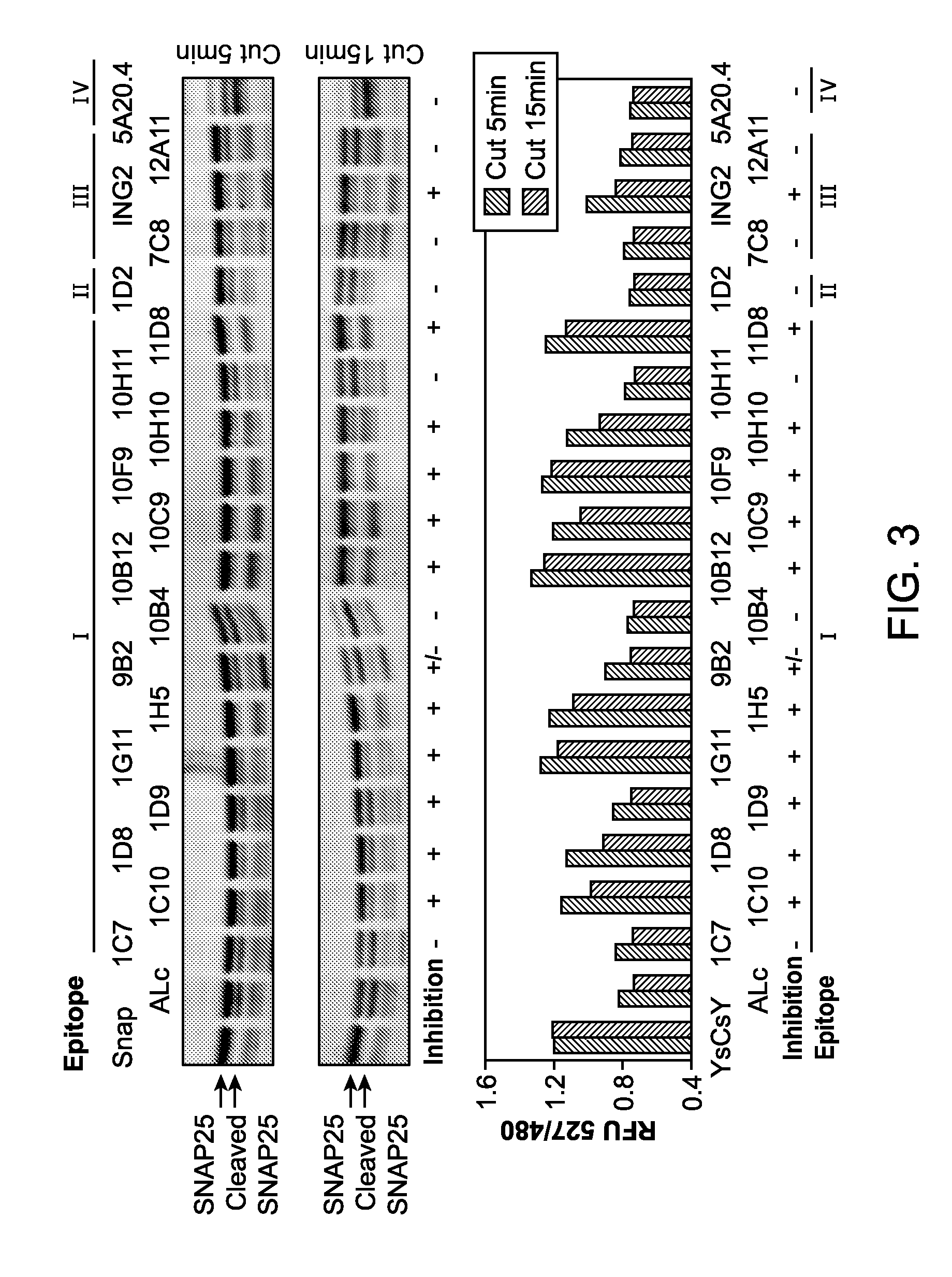Antibodies for botulinum neurotoxins
a technology of antibodies and botulinum neurotoxins, applied in the field of antibodies for botulinum neurotoxins, can solve the problem of unlikely mass civilian or military vaccination
- Summary
- Abstract
- Description
- Claims
- Application Information
AI Technical Summary
Benefits of technology
Problems solved by technology
Method used
Image
Examples
example 1
Generation of Human or Mouse Yeast Displayed scFv Antibody Libraries
[0279]Yeast displayed scFv antibody libraries were constructed from V-genes isolated either from human volunteers immunized with pentavalent botulinum toxoid (serotypes BoNT / A1, BoNT / B1, BoNT / C, BoNT / D, and BoNT / E) or mice selectively immunized with monovalent toxin fragment (BoNT / A LC, BoNT / B LC, BoNT / B HC, BoNT / F HC, etc) or BoNT holotoxin. RNA was prepared from the peripheral blood lymphocytes of 6 different human donors or from the spleens of 13 immunized mice, and the immunoglobulin heavy (VH) and light (VL) chain variable regions amplified using the polymerase chain reaction (PCR) as previously described (Marks, J D et al. (1991) J Mol Biol 222, 581-97; Marks, J D et al. (1991) Eur. J. Immunol. 21, 985-991. Amersdorfer P et al. (1997) Infection Immunity 65: 3743-3752). VH and VL gene repertoires from each donor or mouse were spliced together to create scFv gene repertoires which were cloned for display as N-te...
example 2
Generation of High Affinity Mouse Antibodies Specific to the Light Chain of Type A Botulinum Neurotoxins
[0280]To generate BoNT / A LC specific mAbs, three different yeast displayed scFv libraries were constructed using pYD4 vector and V-genes from BoNT / A LC-immunized mouse spleen RNA, and were subjected to several rounds of sorting using different concentrations of purified BoNT / A LC. Sorts were performed using relatively high concentrations in the initial rounds (100-200 nM) to ensure collection of all antigen-binding scFv. In later rounds, the antigen concentration was decreased to between 1-10 nM to select higher affinity antibodies. Libraries were sorted a total of three to six rounds, and yeast displayed scFv from individual colonies were screened for binding to both the BoNT / A LC and BoNT / A1 holotoxin. Antigen-binding clones were further characterized with respect to the diversity of scFv present using colony PCR and DNA sequencing. In this manner, 17 scFv were isolated, each wi...
example 3
Generation of High Affinity Mouse or Human Antibodies Specific to the Light Chain of Type B Botulinum Neurotoxins
[0282]Similar to the procedures used for BoNT / A LC specific mAbs generation, BoNT / B LC specific mAbs were screened and selected from three different yeast displayed scFv libraries which were constructed from BoNT / B LC-immunized mouse spleen RNA and the yeast display vector pYD4. Each library was subjected to several rounds of sorting using different concentrations of purified BoNT / B LC. 22 scFv were isolated, each with a unique VH and / or VL (Table 2, FIG. 4). The equilibrium binding constant for BoNT / B LC was measured for each of the yeast displayed scFv (Table 2) and were in the range of 0.75 to 17.1 nM, with an average KD of 5.01 nM. The cross reactivity with all four subtypes of BoNT / B was checked and the epitope overlap of each antibody corresponding to previously engineered human mAbs was identified (Table 2). Human MAbs 2B23K1, 2B23K2, 2B23K7, 2B23K11, 2B23EK1, 2B23...
PUM
| Property | Measurement | Unit |
|---|---|---|
| composition | aaaaa | aaaaa |
Abstract
Description
Claims
Application Information
 Login to View More
Login to View More - R&D
- Intellectual Property
- Life Sciences
- Materials
- Tech Scout
- Unparalleled Data Quality
- Higher Quality Content
- 60% Fewer Hallucinations
Browse by: Latest US Patents, China's latest patents, Technical Efficacy Thesaurus, Application Domain, Technology Topic, Popular Technical Reports.
© 2025 PatSnap. All rights reserved.Legal|Privacy policy|Modern Slavery Act Transparency Statement|Sitemap|About US| Contact US: help@patsnap.com



